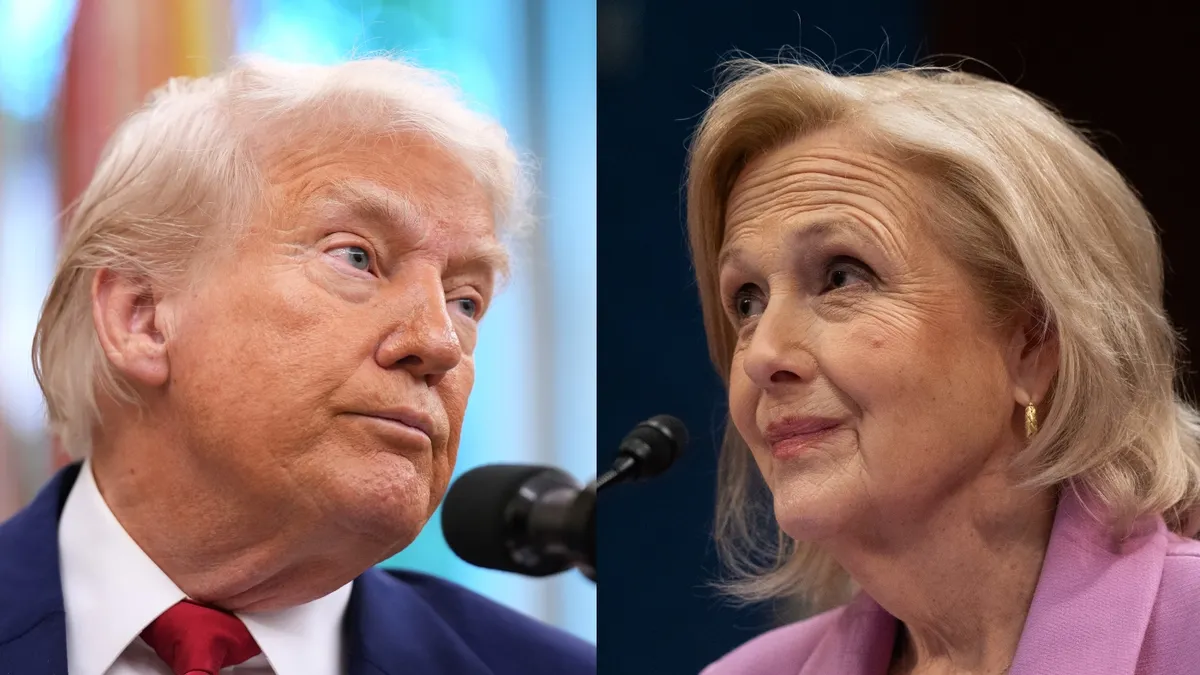
PBS and a public television station in rural Minnesota have taken a significant step by filing a lawsuit against President Trump. This legal action, initiated on Friday, challenges the President's recent executive order that mandates the Corporation for Public Broadcasting (CPB) to cease all funding for the network. The lawsuit claims that Trump's directive is not only unlawful but also exceeds his presidential authority and infringes on constitutional protections of free speech.
The suit highlights that Trump's actions stem from his dissatisfaction with PBS's news coverage and programming. It states that this unprecedented presidential directive poses a threat to public television, asserting, "The executive order makes no attempt to hide the fact that it is cutting off the flow of funds to PBS because of the content of PBS programming and out of a desire to alter the content of speech." This is described as clear viewpoint discrimination and an infringement on the editorial discretion of PBS and its member stations.
PBS President and CEO Paula Kerger has chosen not to comment on the lawsuit but has emphasized the importance of safeguarding public television's editorial independence. In a statement, the network explained that the decision to pursue legal action was made after careful consideration of the potential threats to PBS member stations and their programming. The Minnesota affiliate, Lakeland PBS, echoed these sentiments, underscoring the serious implications for local member stations due to the executive order.
In response to the lawsuit, the White House has argued that the CPB is utilizing taxpayer funds to support a particular political agenda. White House spokesperson Harrison Fields stated that the President is exercising his lawful authority to limit funding to both NPR and PBS, emphasizing that Trump was elected with a mandate to ensure efficient use of taxpayer dollars. The executive order claims that public broadcasting has failed to provide fair and unbiased news coverage, asserting that there are numerous media options available today, making government funding unnecessary.
The executive order prohibits the CPB from distributing any federal funds to PBS and NPR, and it also restricts local stations from funneling federal money to the networks. On social media, Trump has vocally criticized PBS and NPR, urging Republicans to sever ties with what he describes as "radical left monsters." Both networks have firmly rejected these characterizations.
The lawsuit filed by PBS and Lakeland PBS argues that regardless of policy disagreements regarding public television, the Constitution prohibits the President from dictating PBS’s programming content or attempting to defund the network. This legal action follows a similar lawsuit from NPR and three Colorado public radio stations against the Trump administration on the same grounds.
According to the court filings, PBS stands to lose approximately $81 million annually in federal grants, along with a significant portion of the $227 million that public television stations pay to PBS for programming, which includes a wide range of content from children’s shows to acclaimed documentaries. Just a day after the executive order was issued, the U.S. Education Department canceled a $31 million grant to CPB and PBS that funded a crucial educational initiative.
Lakeland PBS, which serves northern and central Minnesota, operates in some of the state’s most economically challenged regions, including several tribal reservations. The station is the only source of nightly news for the area and provides essential resources for local educators, including curricular videos and lesson plans. The lawsuit states that Lakeland PBS relies on federal grants from CPB for 37% of its annual revenue, highlighting that all payments made to PBS for programming come from these federal funds.
Furthermore, PBS programming constitutes more than half of Lakeland PBS's lineup, and the lawsuit argues that the station lacks sufficient unrestricted funds to compensate for the loss of federal support. The financial landscape is also shifting, with local philanthropic contributions declining, making it increasingly challenging for Lakeland PBS to replace lost content and services. The executive order's funding restrictions pose an existential threat to Lakeland PBS, which is the sole local television programming source for countless Minnesotans.
The lawsuit is being pursued by Akin Gump Strauss, a prominent Washington-based law firm. Trump's executive order, issued on May 1st, has already faced opposition from the CPB board, which has rejected the President's decree. The CPB is also embroiled in litigation against Trump over another executive order that attempts to remove three of its five board members, asserting that protections established by Congress shield CPB and public broadcasters from political interference.
As Congress awaits a request from Trump to rescind the $1.1 billion allocated for public broadcasting over the next two years, House Speaker Mike Johnson and other lawmakers plan to expedite the process. The funding, previously approved by a Republican-led Congress and signed into law by Trump, is now under scrutiny as part of a broader effort to implement spending cuts. Once the request is submitted, Congress will have 45 days to approve it for it to take effect.